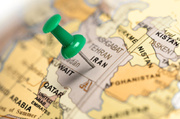Convened by the United Nations Economic and Social Commission for Asia and the Pacific (ESCAP) in Bangkok, Thailand, the meeting brought together senior government officials and experts from 33 countries to discuss how to make the Asia-Pacific region more resilient to disasters.
The backdrop for the meeting was the continued, severe impact of natural disasters, which threatens to roll back hard-won development gains across the region.
According to ESCAP’s newly released Asia-Pacific Disaster Report 2015, Asia and the Pacific bear the brunt of disasters worldwide, accounting for almost 60 per cent of lives lost and 45 per cent of economic losses between 2005 and 2014.
The governments expressed concern that the impacts of disasters on people, economies, cities and infrastructure are rising rapidly, and the constant erosion of environmental buffers further erodes the capacity to cope with disasters.
They called on all government agencies at all levels to take on disaster risk reduction as a priority.
Dr Shamshad Akhtar, United Nations Under-Secretary-General and the Executive Secretary of ESCAP said at the opening that “ours is the most disaster-prone region, so building resilience is not a choice, but rather a collective imperative.”
Dr. Akhtar added: “Disaster risk reduction is a core development priority of Asia and the Pacific.”
Countries in the region agreed to work more closely together within the Asia-Pacific region in order to strengthen technical areas such as drought monitoring and early warning, to enhance the use of space applications, and to promote risk-sensitive development strategies.
Highlighting that the majority of disasters in the region have cross-border origins and impacts, the countries in the region requested ESCAP to work towards the establishment of a regional cooperation mechanism to address the severe impact of transboundary river basin floods.
The countries asked ESCAP to help them access innovative technological applications in early warning that are increasingly able to provide the much needed ‘last mile’ outreach and livelihood support to the most vulnerable.
To this end, the Committee called on ESCAP to facilitate regional cooperation aimed at further enhancing disaster risk reduction for resilient, inclusive and sustainable development, and to establish formal linkages with various disaster risk reduction regional platforms.
The Committee also requested ESCAP to build greater coherence among UN actors in their work on disaster risk reduction through the UN’s Regional Coordination Mechanism in Asia and the Pacific.
HA/PR
























Your Comment